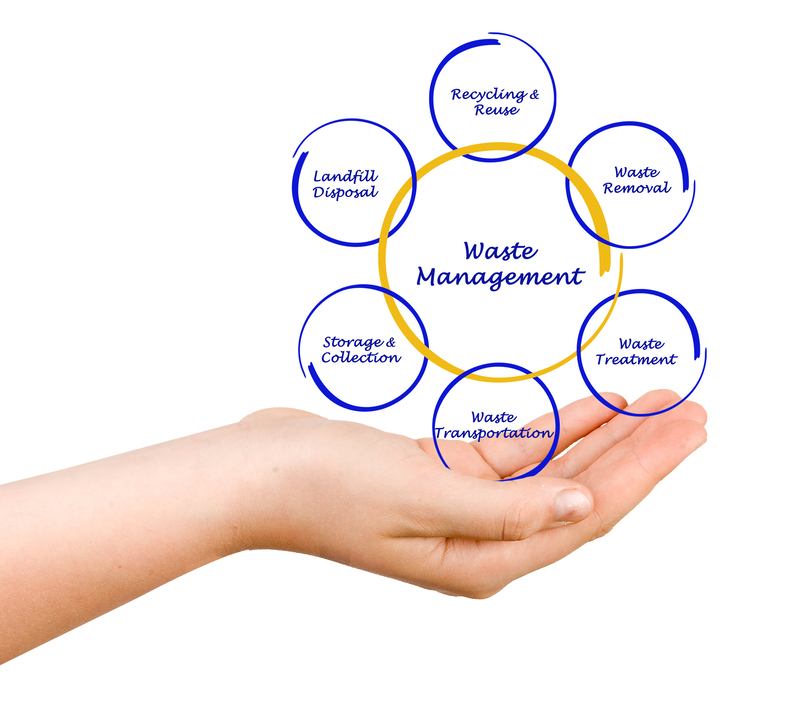How to Handle Bulky Waste Items and Save More Money
Disposing of large, unwanted household items can be overwhelming and costly--if you're not prepared. Whether you're renovating, moving, or simply decluttering, learning how to handle bulky waste items efficiently can benefit both your wallet and the environment. This comprehensive guide explores the best ways to handle bulky waste items, along with money-saving tips and strategies to make the process smoother, greener, and more affordable.
Understanding What Qualifies as Bulky Waste
Before you begin, it's important to know what counts as bulky waste. These are typically items too large or heavy for standard household garbage collection. Common examples include:
- Old furniture: couches, chairs, tables, wardrobes
- Large appliances: refrigerators, washing machines, stoves
- Mattresses and bed frames
- Carpets and rugs
- Large garden waste: tree branches, logs, sheds
- Electronics: televisions, computers, printers
- Construction debris: bathtubs, sinks, cabinets
Knowing which items are considered bulk helps you plan for proper removal and avoid unnecessary fees.

Why Proper Bulky Waste Disposal Matters
Proper handling of large waste items goes beyond saving space at home. There are numerous benefits to disposing of these items responsibly, such as:
- Environmental protection: Reducing landfill waste and pollution.
- Resource conservation: Enabling materials to be recycled or reused.
- Community health and safety: Preventing hazards caused by improper disposal.
- Financial savings: Avoiding fines and potentially earning money back.
Mastering bulk trash disposal not only saves you money but can also help your neighborhood stay cleaner and greener.
The Most Cost-Effective Ways to Handle Bulky Waste
1. Check Local Bulk Item Collection Services
Most cities and towns offer bulk waste pickup services. These are typically scheduled monthly or by appointment. Here's how to take advantage of them and save:
- Contact your local waste management provider to learn about collection dates and accepted items.
- Some municipalities allow a set number of free pickups each year; timing your disposal to coincide with these can help avoid extra charges.
- If your area charges a fee, combining all items into one collection saves on repeat pickup costs.
Be aware: Many communities prohibit certain materials (hazardous waste, tires, etc.), so check rules to avoid penalties.
2. Donate or Give Away Usable Items
One of the best ways to reduce waste and save money is by extending the life of bulky items through donation or reuse. Many organizations accept furniture and appliances in good condition.
- Contact local charities (like Goodwill, Salvation Army, Habitat for Humanity) to learn if they offer free pickup.
- Use community platforms (Freecycle, Craigslist, Facebook Marketplace) to give away items at no cost.
- Tax deductions: Donations may be tax-deductible, offering additional savings.
This is a win-win for everyone: You avoid disposal fees, someone else benefits, and your items stay out of the landfill.
3. Sell Bulky Items Online
If your large item is in usable condition, selling it can help you handle bulk waste and earn money at the same time. Here's how to get started:
- List items on platforms like Facebook Marketplace, OfferUp, Letgo, or eBay.
- Take clear, detailed photos and write accurate descriptions.
- Price items appropriately to encourage quick sales (and factor in your goal to avoid hauling fees).
- Arrange for local pickup so you don't incur delivery or shipping costs.
Pro Tip: Large appliances and vintage furniture can be particularly desirable for resale.
4. Utilize Community Bulk Disposal Events
Many communities host seasonal bulky waste collection days. These events allow homeowners to drop off large items, often for free or at a reduced cost. Steps to maximize these events:
- Check with your city or county for event calendars, rules, and location details.
- Prepare all your bulk waste items in advance for a single trip.
- Some events include recycling stations for electronics or hazardous waste, allowing for eco-friendly disposal as well.
These events are a great opportunity to clear out clutter and avoid individual collection fees.
5. Take Items to a Local Landfill or Transfer Station
If free curbside collection isn't available, you might save money by transporting the items yourself. Compare costs before deciding:
- Contact your nearest landfill or transfer station for rates and accepted materials.
- Some facilities charge by the ton or by vehicle load; consolidate trips to minimize costs.
- Bring proof of residency in case discounts for locals are available.
Self-hauling can be especially efficient when clearing out multiple bulky items at once.
6. Reuse, Upcycle, or Repurpose
Can your bulky waste items have a second life? Before discarding, consider creative re-use options:
- Convert old furniture into shelves, planters, or pet beds.
- Use scrap lumber or metal from construction debris in DIY projects.
- Search online for upcycling inspirations to turn trash into treasure without spending more.
Upcycling is not only environmentally friendly but can also save money on new purchases.
Special Considerations for Bulky Appliance and Electronics Disposal
Large appliances and electronics need careful handling because they can contain refrigerants, heavy metals, or other hazardous components. Here's how to manage them safely and affordably:
- Retailer Take-Back Programs: Appliance stores and electronics retailers may remove your old item when delivering a new one, often for free or a nominal charge.
- Manufacturer Recycling: Some brands offer recycling programs for old products--sometimes with rebates or incentives.
- Certified E-Waste Recyclers: Search for certified electronics recycling facilities that properly handle components and offer zero-to-low-cost drop-off.
Never place appliances or electronics with standard trash: Many municipalities fine for improper disposal of these items.
How to Save the Most Money on Bulky Waste Removal
Plan Ahead and Consolidate
Timing is everything when it comes to handling bulk trash affordably. Some strategies include:
- Plan large disposals to coincide with free municipal collection days.
- Ask neighbors if they have items too, as sharing costs (like skip/bin rental) reduces expenses for everyone.
- Hold off on removing one item at a time--multi-item pickups are usually cheaper per item.
Minimize Labor and Hauling Fees
When hiring a company or service for bulky waste, consider the following:
- Shop around for quotes; prices can vary significantly by provider and region.
- Disassemble items if possible to reduce labor time and fit more waste per trip.
- Place waste in an accessible location for easy and quick removal--many companies charge extra for difficult pickups.
Remember: Reducing the labor required will almost always lower your bill.
Leverage Local Recycling Programs
Some recycling centers accept bulky waste for free--especially for metals and electronics. Look for:
- Scrap metal buyers--may pay you for old appliances, radiators, or bed frames.
- Mattress recycling programs--many states now offer drop-off centers.
- Special e-waste events--free recycling for computers, TVs, and other electronics.
This can turn disposal into a money-saving (or even profit-generating) opportunity.
Top Mistakes to Avoid With Bulky Waste Disposal
Handling big items can have drawbacks if not done smartly. Avoid these costly and common errors:
- Putting forbidden items (hazardous materials or electronics) in regular trash, which can result in fines or legal trouble.
- Paying for removal when donation or resale was possible.
- Forgetting to check special collection days and missing free disposal opportunities.
- Not consolidating a full load, which leads to higher pickup or landfill fees.
- Disregarding safety--lifting heavy items improperly can lead to injury and extra costs for treatment.

Frequently Asked Questions About Handling Bulky Waste and Saving Money
How often can I request bulky item pickup from my city?
This depends on your local municipality. Many cities offer one or two free pickups annually, while others allow you to request a service for a small fee at any time. Always check with your local government for accurate information.
Are there items that cannot be collected or donated?
Yes. Items like tires, hazardous chemicals, certain electronics, or excessively damaged furniture are typically not accepted in regular programs. Specialized services may handle these for an extra fee.
How much can I save by selling or donating instead of dumping?
Possible savings include avoiding landfill or haul-away fees ($50-$200 per item) and potential income from selling usable items. If you donate, you may also receive a tax deduction.
Is it safe to handle bulky waste on my own?
With proper lifting technique and safety gear, moving items yourself can save money. For especially heavy or awkward items, however, hiring a professional may prevent injury and lower risk in the long run.
Conclusion: Make Bulky Waste Disposal Work for Your Wallet
Learning how to handle bulky waste items doesn't have to be difficult or expensive. By understanding your options, taking advantage of free or low-cost disposal programs, and looking for opportunities to resell or donate, you can save more money and help the environment at the same time.
- Research your options and plan ahead.
- Emphasize resale, donation, or recycling before defaulting to landfill.
- Take advantage of community resources and collection events.
In the end, smart, responsible bulky item disposal is about maximizing value--for your home, your community, and your budget. Take the time to explore all your options, and you'll discover that handling large waste items can be surprisingly affordable and rewarding.
